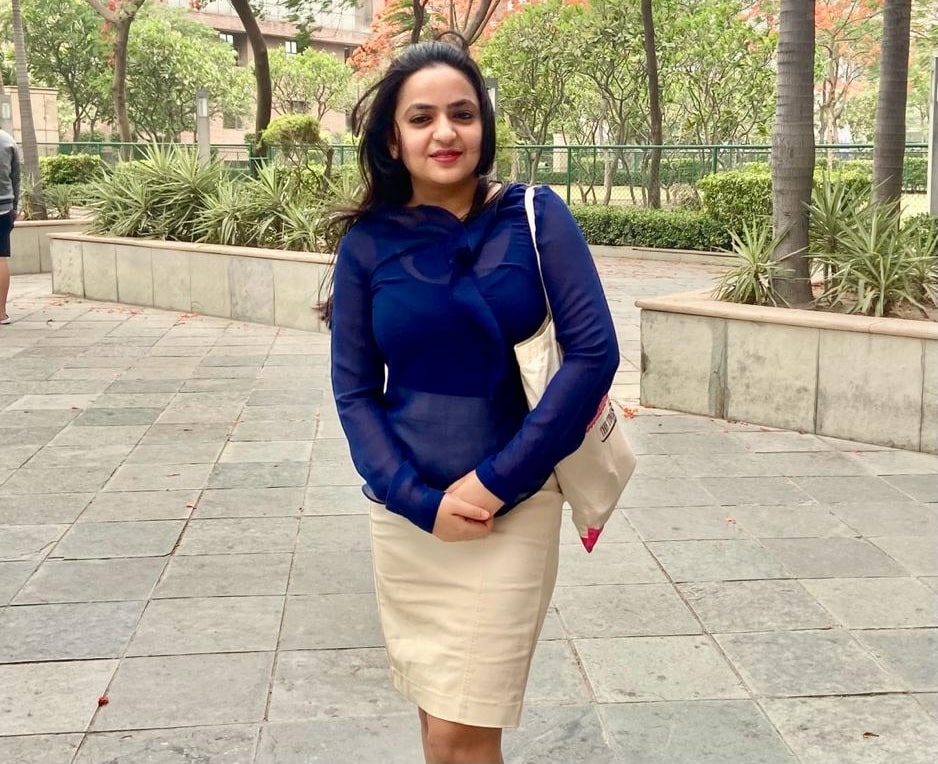
*Surbhi Rani Verma
Jharkhand Princess Surabhi Rani Verma has been invited to talk and present a paper at the 32nd Annual Meeting of the World History Association in partnership with the University of Pittsburgh’s World History Centre, Pittsburgh, Pennsylvania, USA.
Surabhi Rani Verma, daughter of Sushil Kumar Verma, who retired as Administrator, Sports Authority of India, Jharkhand, is a researcher from
the Department of Humanities and Social Sciences at the Indian Institute of Technology Madras (IITM), Chennai.
She is the first academician from Jharkhand to represent IIT, Madras at World History Centre, Pittsburgh.
Pittsburgh is the place of one of the earliest developers of coal and oil energy and home to one of the World’s top World History programs. The “Steel City” - Pittsburgh is the perfect locale for the Meeting’s overarching theme, ENERGIES, where scholars from across the globe will have the opportunity to present new and innovative research on a vast array of energy-related topics.
The 32nd Annual WHA Conference, ENERGIES, features two keynote speakers who bring a wealth of knowledge and expertise in environmental history. Opening the proceedings on June 22, 2023, will be Dr Brian Black of Penn State – Altoona. On June 24, 2023, Dr Victor Seow of Harvard University will deliver the conference’s concluding address.
Lectures and paper presentations will be given by researchers and professors from all over the world, such as the University of California, USA; Monmouth University, New Jersey; San Diego State University, USA; Swiss Federal Institute of Technology (ETH Zürich), Switzerland; Salem State University, Tel Aviv University, Israel; Washington State University, Vancouver, Canada, OSHER Institute, University of New Mexico; University of New South Wales, Australia and etc.
Surabhi Rani Verma’s paper or talk is on the broad theme of “ Energy, Labour and Global Commodities in Colonial South Asia” and particularly on “ Rubber and the Nexuses of Energies: A Case Study of Rubber Plantations in Travancore State in Colonial India”.
Situating the establishment of rubber plantations in the context of ‘local’ and ‘global’ spaces introduces academicians like Surbhi Rani Verma to a set of nexuses of energies and exploitations.
The demand for rubber accelerated with the emergence of the automobile industries - necessitating more (colonial) spaces for growing more rubber. The World Wars presented a further sense of urgency and rapid demand.
The use of rubber (primarily for tyres), in automobiles, which in turn consumed fuel, led to further exploitation of energy and consequent deterioration of the environment - in addition to the intense deforestation caused by the planting of rubber on ever-increasing scales (till synthetic alternatives were found).
The talk, while situating rubber in the vortex of multiple energy flows, is expected to critically examine the often inconspicuous efforts and energies of individuals, indigenous capitalists, go-betweens and labourers.
Further, the technological advancements and the varied forms of energies deployed by the colonisers (especially in the context of the Industrial Revolution), were largely exploitative – altering not only the local landscapes but also their inherent energy flows – material and human.
As the processes required large-scale clearing of forests, the new landscapes that emerged were frequented by epidemic outbreaks of diseases and other medical challenges - thus involving considerable sapping of energy (apart from that caused by harsh conditions of labour). The talk elucidates the various energy challenges and responses in the context of rubber plantations.
Short Biography of Surabhi Rani Verma: She is a PhD scholar in the Department of Humanities and Social Sciences at the Indian Institute of Technology Madras (IITM), Chennai.
Currently, working on themes related to science, technology, and the introduction of rubber in colonial India. Her research interests lie in the domains of plantations, crop movements, and the history of science and technology. She obtained a Bachelor's degree (History) from Lady Shri Ram College, Delhi University, and her Master’s degree (History) from the University of Delhi.